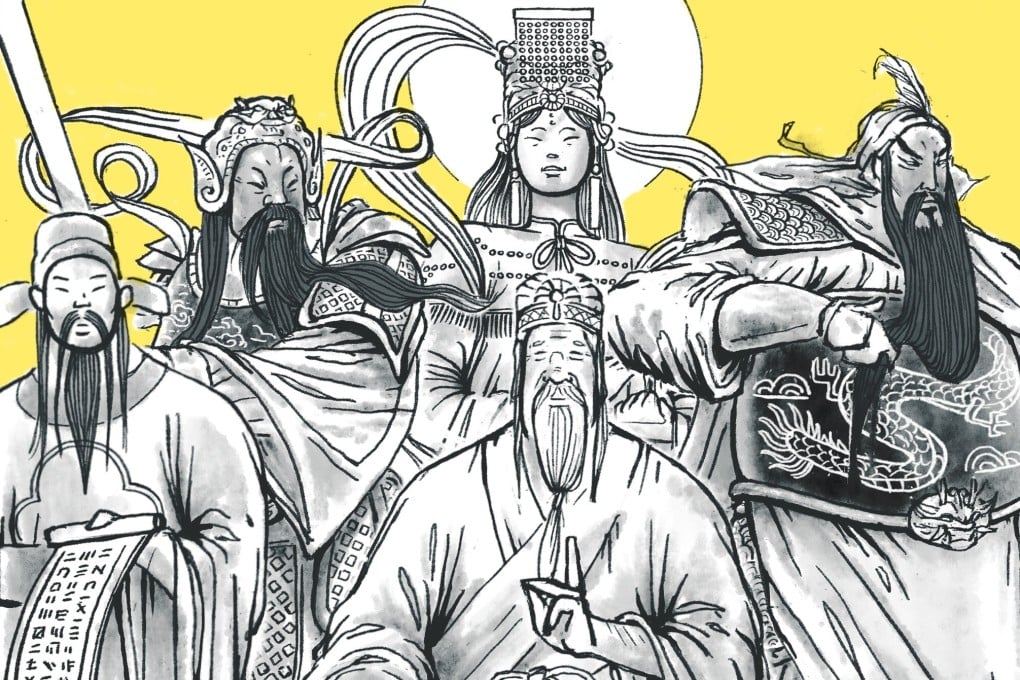City of gods: Hong Kong’s varied cast of ancient deities explained
- Southern Chinese folk religions still thrive in the city, a confluence of Buddhism, Taoism and Confucianism
- Festivals, temples and even the names of neighbourhoods venerate the likes of Tin Hau, Wong Tai Sin and more

It’s impossible to wander through Hong Kong without coming across a Chinese temple, easily recognisable with their green-tiled roofs and burning incense. Some are wedged between towering buildings; others a trek from the city centre or a stand-alone structure along Hong Kong’s many island coastlines.
Traditionally, Hongkongers practise southern Chinese folk religions, which venerate ancestry and the rational balance between humans and nature. Here, worship is devoted to a pantheon of countless immortals.
By the Song dynasty (960-1279AD), the boundaries had blurred between the practices of Buddhism, Taoism and Confucianism in the region – fusing a popular system of belief that has lasted until today.
Even as glossy skyscrapers and mega-malls take over the skyline, the still-frequented temples prove Hong Kong’s undying devotion to heritage. From places of worship that rest at the feet of tall buildings to the incense that burns along streets as pedestrians go about their daily business, such elements can be seen throughout the city.
This week, City Weekend explores some of the many folk deities that contribute both to Hong Kong’s urban make-up and its immense religious medley.

Tin Hau
